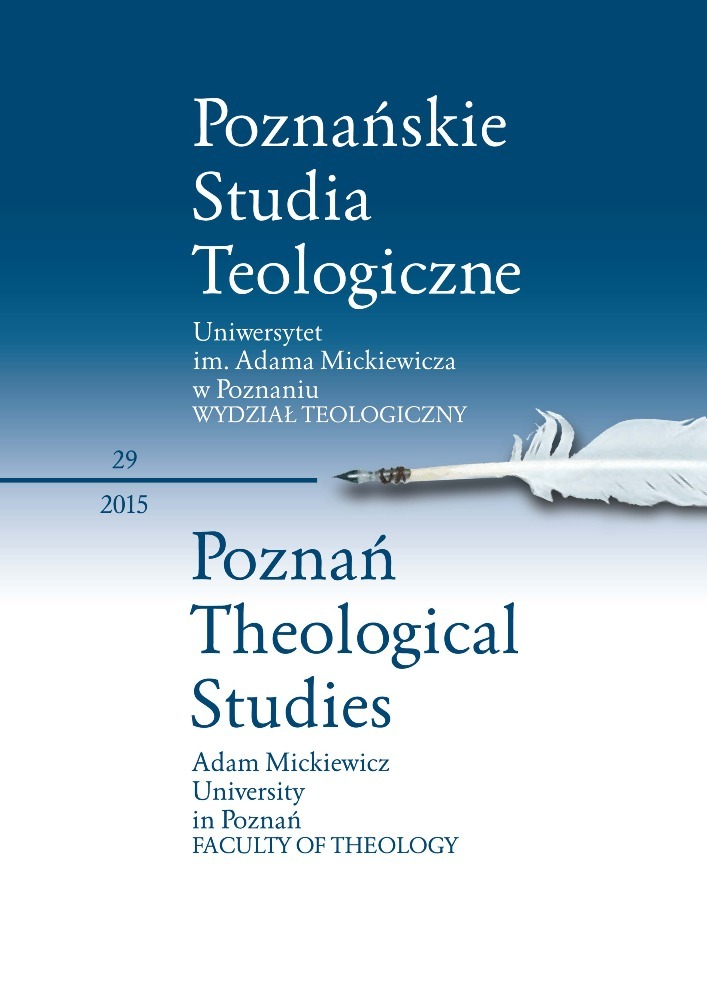Abstract
The article by Joseph Ellul OP analyses similarities and differences in the philosophical approach of Ibn Rušd and St. Thomas Aquinas. For the Muslim philosopher, religion appealed to the masses by applying symbols, imagery and laws, whereas philosophy arrived at the truths of revealed Law through demonstration. He goes to great lengths in order to establish the existence of harmony between philosophy and religion, but he appears to take it in the sense of conformity of religion to the requirements of rational discourse, particularly in his discussion of the literal and the allegorical interpretation of the Qur’ân.
For Thomas Aquinas revealed truth, that is to say the truth of the Christian faith, lies beyond reason, but the latter cannot be opposed to the former, since what nature endows cannot be opposed to supernatural gift. The exercise of reason is instrumental in order to clarify, corroborate and defend the truths of the Christian faith. Consequently, reason should be applied in order to prove that what adversaries are stating about the Christian faith is false. Although the realm of reason is not coextensive with that of faith, this by no means should imply that they are mutually exclusive or contradictory. As Aquinas points out, the philosopher considers creatures as they are, whereas the believer views them in their relation to God.
Aquinas’s intellectual investigations allowed him to bridge the divide that arose in encounters with members of non-Christian religions in the common pursuit of truth. His works are a living testimony to the encounter between Christian thought and Islamic philosophy inspired by both the Peripatetics and the Neoplatonists together with the indirect contribution of Muslim theological thought.
References
Alami Dawoud Sudqi El and Hinchcliffe Doreen, Islamic Marriage and Divorce Laws of the Arab World. London-The Hague-Boston: Kluwer Law International, 1996.
Alfarabi: Philosophy of Plato and Aristotle, translated with an introduction by Muhsin Mahdi (revised edition), Ithaca, New York: Cornell University Press, 2001.
Al-Ġazālī, Deliverance from Error and Mystical Union with the Almighty: Al-Munqidh min al-Ḍalāl, English translation with introduction by Muḥammad Abūlayah, and Critical Arabic text established with Nurshīf Abdul-Raḥīm Rifʿat, Introduction and notes by George F. McLean, Washington, D.C.: The Council for Research in Values and Philosophy, 2001.
Al-Ġazālī, The Incoherence of the Philosophers, A parallel English-Arabic text translated, introduced, and annotated by Michael E. Marmura, Provo, Utah: Brigham Young University Press, 2002.
Averroës, The Decisive Treatise determining the Connection between the Law and Wisdom & Epistle Dedicatory, Translation , with introduction and notes by Charles E Butterworth, Provo, Utah: Brigham Young University Press, 2008.
Avicenna: The Metaphysics of “The Healing”, translated, introduced, and annotated by Michael E. Marmura, Provo, Utah: Brigham Young University Press, 2005.
Burrell D.B. C.S.C, Thomas Aquinas and Islam, in J. Fodor and F. Christian Bauerschmidt (eds.), Aquinas in Dialogue: Thomas for the Twenty-First Century, Malden, Minnesota: Blackwell Publishing, 2004, pp. 67-85.
Burrell D.B., C.S.C., “Aquinas and Islamic and Jewish Thinkers” in N. Kretzmann and E. Stump (eds.), The Cambridge Companion to Thomas Aquinas, Cambridge, UK: Cambridge University Press, 1993, pp. 60-83.
Chenu M-D, Aquinas and His Role in Theology, Collegeville, Minnesota: Michael Glazier, 2002.
Craig E., (Editor), Encyclopedia of Philosophy, London: Routledge, 1998.
Dante Alighieri, The Divine Comedy, The Inferno, the Purgatorio and the Paradiso, translated by J. Ciardi, New American Library, New York 2003.
Gardet L., “Saint Thomas et ses prédecesseurs arabes,” in A. Maurer (ed.), St. Thomas Aquinas 1274-1974, Commemorative studies, Toronto: Pontifical Institute of Mediaeval Studies, 1974, vol. I, pp. 419-448.
Gilson É., Les sources gréco-arabes de l’augustinisme avicennisant, (Paris: Librairie Philosophique J. Vrin, 1986).
Habermas J., Ratzinger J., The Dialectics of Secularization: On Reason and Religion, (San Francisco, Ignatius Press 2007).
John Paul II, Fides et Ratio, Vatican City: Libreria Editrice Vaticana, 1998.
Kraemer J.L., Humanism in the Renaissance of Islam (Leiden: E.J. Brill, 1992).
Leaman O., Averroes and his philosophy (Richmond, Surrey: Curzon Press, 1998).
Libera A. de, Averroès: L’islam et la raison, traduction par M. Geoffroy, presentation par A. de Libera, Paris: GF Flammarion, 2000.
Plato: Complete Works, Edited, with Introduction and Notes, by John M. Cooper, Indianapolis/Cambridge, Massachusetts, Hackett Publishing Company, 1997.
Ṭabarī, Ğāmiʿ al-bayān ʿan taʾwīl ây al-Qurʾân, Maḥmūd Muḥammad Šakīr and Aḥmad Muḥammad Šakīr (eds), Cairo: Dār al-Maʿārif, 1374/1954-.
Taylor R.C., ‘Averroes: religious dialectic and Aristotelian philosophical thought’, Peter Adamson & Richard C. Taylor R.C., The Cambridge Companion to Arabic Philosophy (Cambridge, UK: Cambridge University Press, 2005).
Thomas Aquinas, De rationibus fidei contra Saracenos, Graecos et Armenos ad Cantorem Antiochenum, translated by J. Kenny, O.P. as “Reasons for the Faith against Muslim Objections,” in Islamochristiana 22 (1996), pp. 31-52.
Thomas Aquinas, Scriptum super libros Sententiarum magistri Petri Lombardi episcopi Parisiensis, t. 2, ed. P. Mandonnet, P. Lethielleux, Parisiis 1929.
Thomas Aquinas, Summa contra Gentiles, Book One: God, translated with an Introduction and Notes by A.C. Pegis, F.R.S.C., Notre Dame, Indiana: University of Notre Dame Press, 1975.
Thomas Aquinas, Summa Theologiae, English translation published by Blackfriars in conjunction with Eyre & Spottiswoode, London and McGraw-Hill, New York, 1964-1966.
Thomas d’Aquin, Saint: Les raisons de la foi, Les Articles de la foi, et Les sacrements de l’Église, Introduction, Traduction du latin et annotation par Gilles Emery (Paris: Les Éditions du Cerf, 1999).
Tocco de G., Vita Sancti Thomae Aquinatis, , in Fontes Vitae S. Thomae Aquinatis (notis historicis et criticis illustrati), curis et labore D. Prümmer O.P., Fasciculus II, Tolosa s.d.
Waltz J., “Muhammad and the Muslims in St. Thomas Aquinas,” in The Muslim World, n. 66 (1976), pp. 90-91
Weisheipl J.A., Friar Thomas of Aquino: His Life, Thought and Works, Washington, DC: Catholic University of America Press, 1983.
Zerafa P., O.P., “Alterità Mitologika u Alterità Filosofika,” in KNISJA 2000, n. 21 (1992), pp. 14-15.
License
Copyright
© 2015 Uniwersytet im. Adama Mickiewicza w Poznaniu, Wydawnictwo Naukowe UAM, Poznań
OPEN ACCESS
